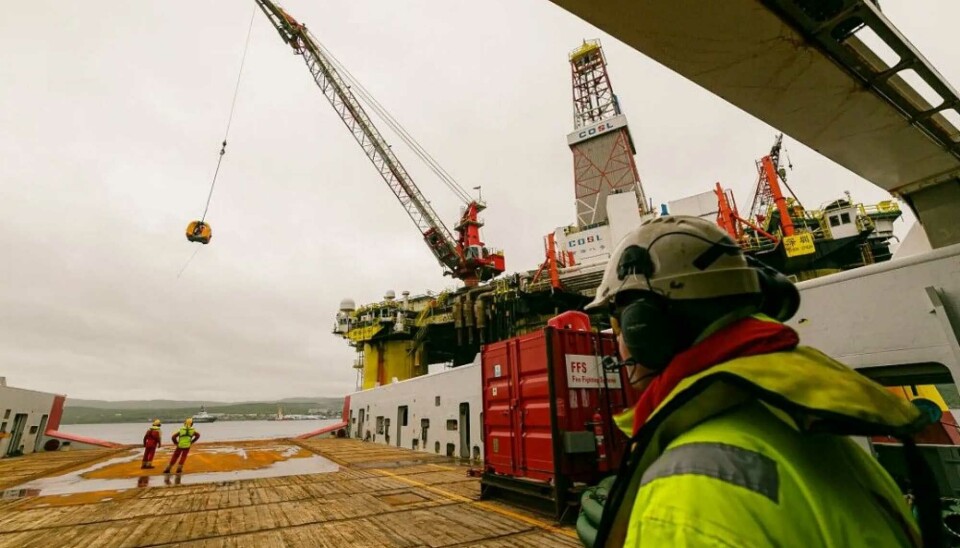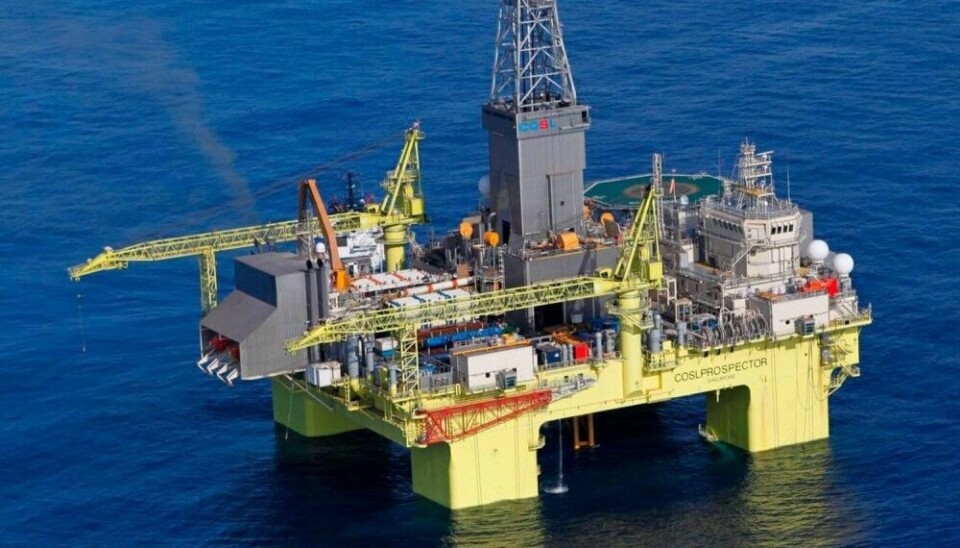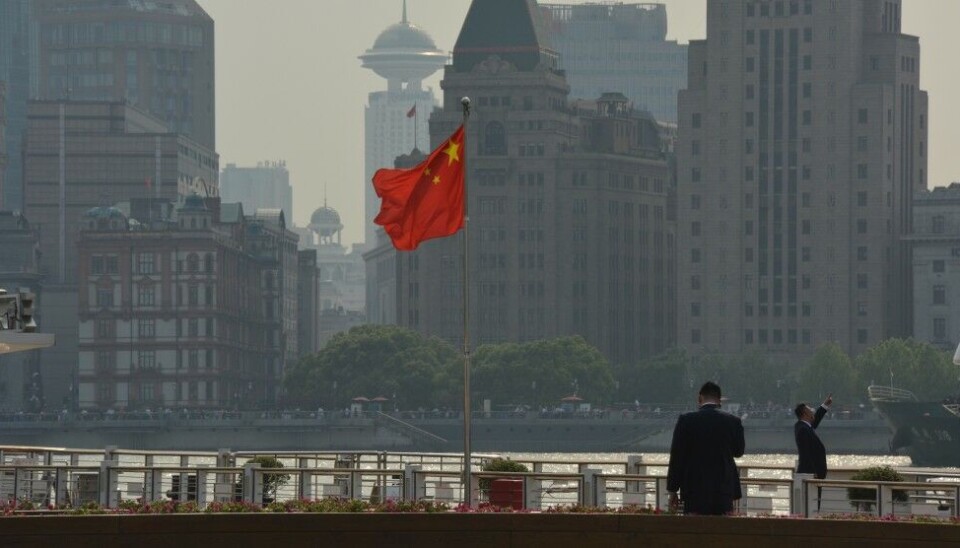
Chinese rig heads towards Norwegian Arctic drill site
Amid growing Norwegian concern for Chinese threats, the COSLProspector prepares for drilling at 71° North in the Barents Sea. "China has a long-term plan to establish itself in the Arctic," a Norwegian professor at the Norwegian Military Academy says.
Norwegian security authorities increasingly warn against Chinese influence operations and strategic positioning in key industries. Nevertheless, the Norwegian Shelf Directorate this week gave the Chinese semisubmersible rig permission for drilling at block 7122/9 in the Barents Sea.
The permission takes effect on 1 November 2024, and the 17340 tons deadweight jackup platform is already in the area of the drill site.
The COSLProspector is owned and operated by COSL Drilling Europe, a European branch of Chinese state-owned enterprise China Oilfield Services (COSL). The rig is built by a Chinese yard in 2014 and operates under the flag of Singapore.

COSL Drilling Europe is based in Stavanger, Norway, and has several Chinese nationals in its management team.
The drill site in the Barents Sea is named “Elgol” and located about 80 km north of the Norwegian mainland. Nearby is the Goliat oil field. Water depth in the area is 415 meters.
The far northern license area is operated by Vår Energi, the Norwegian subsidiary established in 2018 following a merger between ENI and Point Resources. In August 2023, the company signed a contract with COSL for drilling in the Barents Sea.
Also Norwegian state oil company Equinor has signed a cooperation agreement the Chinese low-cost drilling contractor.
COSL Drilling Europe has a fleet of at least six drilling rigs. It is primarily the COSLProspector that will drill in the Barents Sea over the next years.
The cooperation with the Chinese company comes despite repeated warnings from Norwegian intelligence authorities.
In its latest annual report, the country's Intelligence Service devotes a separate chapter to the Asian nation and mentions the word "China" as many as 125 times.
According to the service, all Chinese companies and individuals are required by law to assist China’s intelligence and security services.
The Arctic is increasingly a priority region for Beijing, the report titled Focus 2024 reads.
"China does not constitute a military threat to Norway, but it has an interest in establishing a political, economic and, in time, military foothold in the Arctic."
According to Njord Wegge, Professor at the Norwegian Military Academy, China is increasingly active in the northern region.
"China has a long-term plan on a strategic level to establish itself in the Arctic," he says to the Barents Observer.

He explains that the country over many years has gotten easy access to research materials and lately also seabed data. China is also in the process of developing its own icebreaking capabilities in the region and this year presented its third icebreaker.
"I see it as a noteworthy development where China in several more ways is able to operate in the Arctic and obtain new knowledge," Wegge says.
The professor heads a research group on Security and Military Power in the Arctic. He has also published a number of pieces on security policy and military power in the Arctic, hybrid war and intelligence, including the role of China.
"It is actually not in Norwegian interest that China very firmly establishes itself in our part of the world," he says.
Wegge argues that Norway should be careful about getting too dependent on Chinese goods and technology.
"If a Norwegian oil company makes itself dependent on a Chinese actor it includes a security challenge in the sense that one would not like to make oneself dependent on Chinese technology," he says.
"China wants to establish itself as a global superpower. And China is not a democracy. It is an authoritarian state with repression and censorship. They do not share our views on a liberal and rule-based world order."

The Barents Observer has reached out to COSL Drilling Europe for a comment about the upcoming well drilling, as well relations with the Chinese mother company and the growing threat environment.
Neither company CEO Frank Tollefsen, nor the company administration, has responded to our questions.
Communication Adviser Jan Eirik Heigre Gjerdevik at Vår Energi says to the Barents Observer that a thorough evaluation was made ahead of signing the contract with COSL.
"The most important for us is to contract secure and reliable rigs for our drilling campaigns. In line with regular contract procedures we also in this case conducted a careful evaluation that included a duel diligence assessment."
He also underlines that COSL Drilling Europe is a company based and managed from Norway and that Vår Energi has "full confidence that it is run in accordance with Norwegian and international laws."
"On a general basis, we have continuous dialogue with Norwegian authorities about issues of security and safety on the Norwegian shelf."













